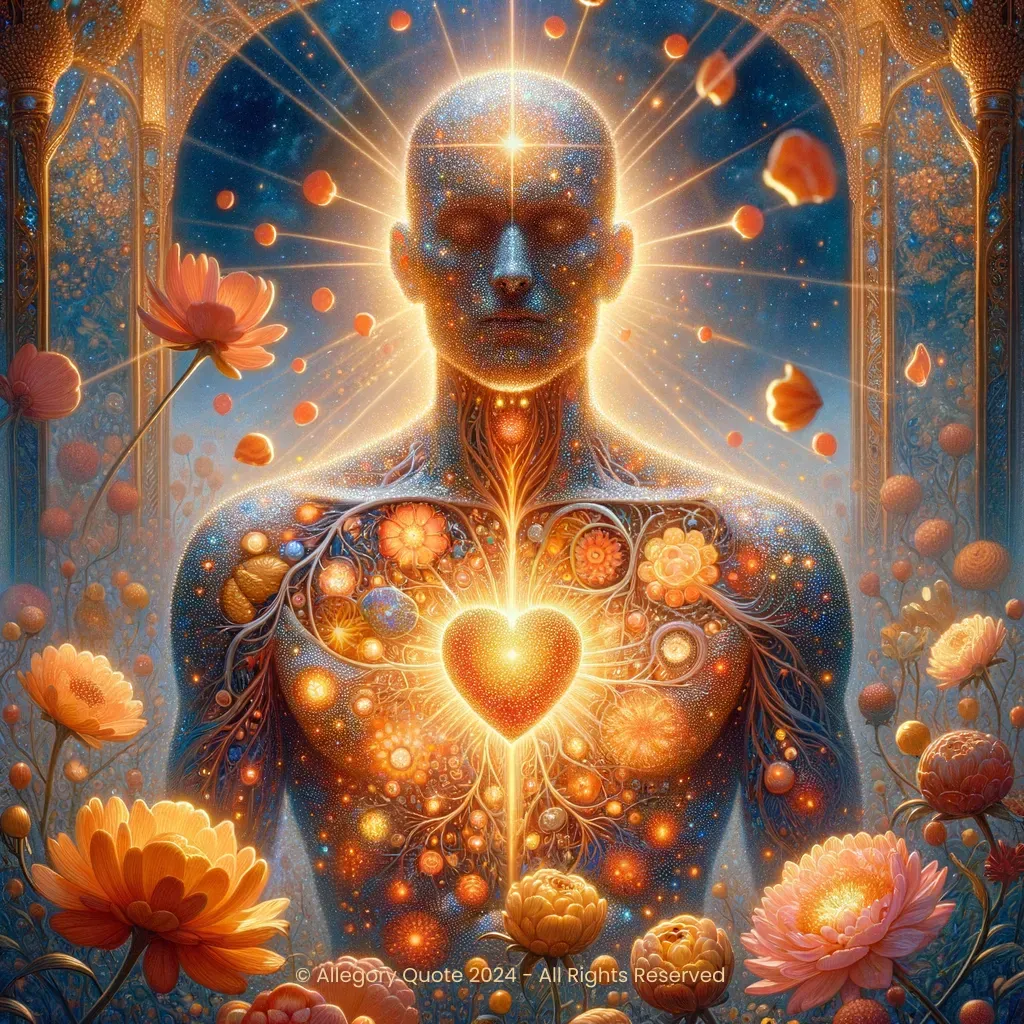”She warned him not to be deceived by appearances,
for beauty is found within“

0
0
0
0
- Meaning
- The phrase suggests that one should seek deeper truths about people, valuing compassion, kindness, and depth over mere physical charm. It touches upon philosophical concepts of essentialism and existentialism, where the essence of a person is prioritized over their superficial traits. This encourages a understanding that true value lies beneath the surface.
- Allegory
- The elements in the image signify the duality between superficial beauty and the profound warmth found in inner goodness. The enchanting facade represents how society often perceives beauty, while the glowing heart symbolizes the virtues that truly constitute one's character. The blooming flowers emanating from the heart signify growth and the nurturing aspect of inner beauty, reinforcing the notion that true allure emerges from within.
- Applicability
- In personal life, one can apply this lesson by cultivating a deeper understanding of themselves and others. It encourages looking beyond first impressions and appreciating qualities like character, integrity, and emotional intelligence in relationships.
- Impact
- The phrase has impacted literature and conversations about beauty standards, self-acceptance, and the importance of virtues over superficial appearances. It often inspires discussions in areas like dating, friendship, and societal expectations.
- Historical Context
- This type of saying likely emerged during the Romantic period, where there was a movement towards valuing emotion and the inner experience over strict rationalism, which could be dated to around the late 18th to 19th century. The context reflects a shifting perception of beauty in art and life, stressing personal judgment and virtue.
- Criticisms
- Critics argue that downplaying physical attractiveness can undermine the complexity of human attraction, suggesting that physical beauty does have a role in relationships. Some may argue that the phrase promotes an overly simplistic view of interpersonal dynamics that cannot be entirely separated from attraction.
- Variations
- Variations of this phrase exist in many cultures, reflecting similar sentiments. For instance, in some Asian cultures, there are sayings that emphasize the heart or spirit's value over physical appearance, promoting respect for the inner self.
-

It’s not until you lose everything that you can truly appreciate everything.
-

It’s called a hustle, sweetheart.
-

You can’t marry a man you just met.
-

You don’t have to be perfect to be amazing.
-

Your identity is your most valuable possession. Protect it.
-

What can I say? I’m a rebel.
-

You were my new dream.
-

I’d rather die tomorrow than live a hundred years without knowing you.
-

The meaning of our life is the journey, not the destination. Because every answer is fallacious, every satisfaction slips through our fingers, and the destination is no longer such once it has been reached.
No Comments